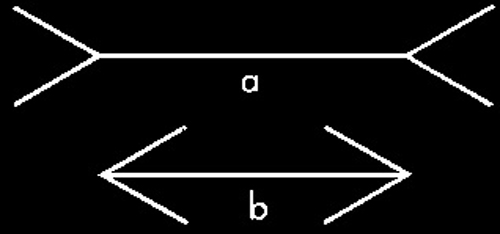The truth is multiple but a is not bigger than b…
“A good society must recognize that reasonable human beings will always hold irreconcilable views.” Isaiah Berlin
Maybe the Truth is plural (I am not talking about scientific truth); what would it be like, if, freed from the pressure to be right, we were able to listen to each other ?
“What would it be like if we had enough confidence in the truth we possess to actually hear the truth of another human being?” Robin Ressler


few lines from Tolstoy
“I know that most men, including those at ease with problems of the greatest complexity, can seldom accept the simplest and most obvious truth if it be such as would oblige them to admit the falsity of conclusions which they have proudly taught to others, and which they have woven, threads by threads, into the fabrics of their life”.
Brilliant & Thought Provoking…
In my opinion “Truth is plural” to an extent even in science..(Quantum Physics and Relativity )
Thinking requires “Plurality”, thought and more generally, life comes into being from the juxtaposition of at least two principles. The unified nonexistences;the unity of Truth is no-thought. There would be no space if there were no right and left;there would be no morals if there were no good and evil…
Truth only acquires value when it becomes part of a plausible world outlook. Moreover a valuable truth necessary has the right to the exactly opposite truth that corresponds to it.In other words an opinion directly opposite to a truth is in turn also true..
In the words of Alan Watts..You can have the use of the inside of cup without the outside ..The inner and outside go togather..They are one..
Il me semble que Michel Foucault a défendu l’idée de relativisme de la vérité. N’est-ce-pas de cela dont il s’agit ici? Sur ce sujet, il faudrait lire l’ouvrage de Pascal Engel :”la norme du vrai”, dans lequel l’auteur s’oppose à ce relativisme.
Autre chose, plus importante : les récents procès de Téhéran ne font-ils pas penser à ceux de la période stalinienne dans lesquels les accusés clamaient leur culpabilité après avoir été torturés?
Autre remarque à propos du relativisme :
si l’on adopte ce point de vue, qu’en est-il du droit naturel et de la déclaration universelle des droits de l’homme qui en découle?
“The way in which knowledge progresses, and especially our scientific knowledge, is by justified(AND UNJUSTIFIABLE) anticipations, by guesses, by tentative solutions to our problems, by conjectures. These conjectures are controlled by criticism, that is, by attempted refutations, which include severely critical tests. They may survive these tests, but they can never be positively justified: they can be established neither as certainly true nor even “probable” (in the sense of probability calculus). criticism of our conjectures is of decisive importance: by bringing out our mistakes it makes us understand the difficulties of the problem which we are trying to solve. This is how we become better acquainted with our problem, and able to propose mature solutions: the very refutation of a theory- that is , of any serious tentative solution to our problem-is always a step forward that takes us nearer to the truth. And this is how we can learn from our mistakes.
As we learn from our mistakes our knowledge grows, even though we may never know- that is, know for certain. Since our knowledge can grow, , there can be no reason here for despair of reason. And since we can never know for certain, there can be no authority here for any claim to authority, for conceit over our knowledge, or for smugness.”
We must always be willing to listen to others, and at the same time always be critical of what we know as “eternal” truths. In order to develop we need to falsify old discourses in order to give birth to new realities , which in turn should be subjected to scrutiny and falsification. We need to have enough confidence to see realities from other perspectives, since we can never see all the angles from where we stand at a certain time and space. We grasp realities in order to change ourselves and at that very moment we have changed the reality in which we exist in.
Truth is not multiple, truth is one. The truth is that the two lines are equal in length but we see them otherwise. Opinions are multiple which are not truth. Opinions stem from reality and reality is shaped by personal thoughts and opinions hence varies from person to person. And yes, as long as I die to be right I cannot listen to others. Rightness comes from reality and reality is a variable hence right can be wrong whereas truth is just is and “being” does not understand right or wrong. And……..
Nous vivons dans un monde de mensonge et pour mieux comprendre son fonctionnement, nous sommes constamment à la recherche des vérités.
Aujourd’hui, on peut -être condamné pour avoir dit la vérité et libéré pour avoir menti.
Tous ce que je sais c’est que certaines vérités d’aujourd’hui ne seront plus valables dans cent ans ou bien tout simplement elles seront ridicules.
Combien de fois en sciences, en psychologie, en philosophie et dans la vie courante nous avons allié le faux et le vrai. N’est ce pas pour accéder à une part de vérité ?
J’aime cette phrase de Montaigne : « La vérité doit avoir un visage pareil et universel »
“Knowledge rests not upon truth alone, but upon error also.”
Carl Gustav Jung